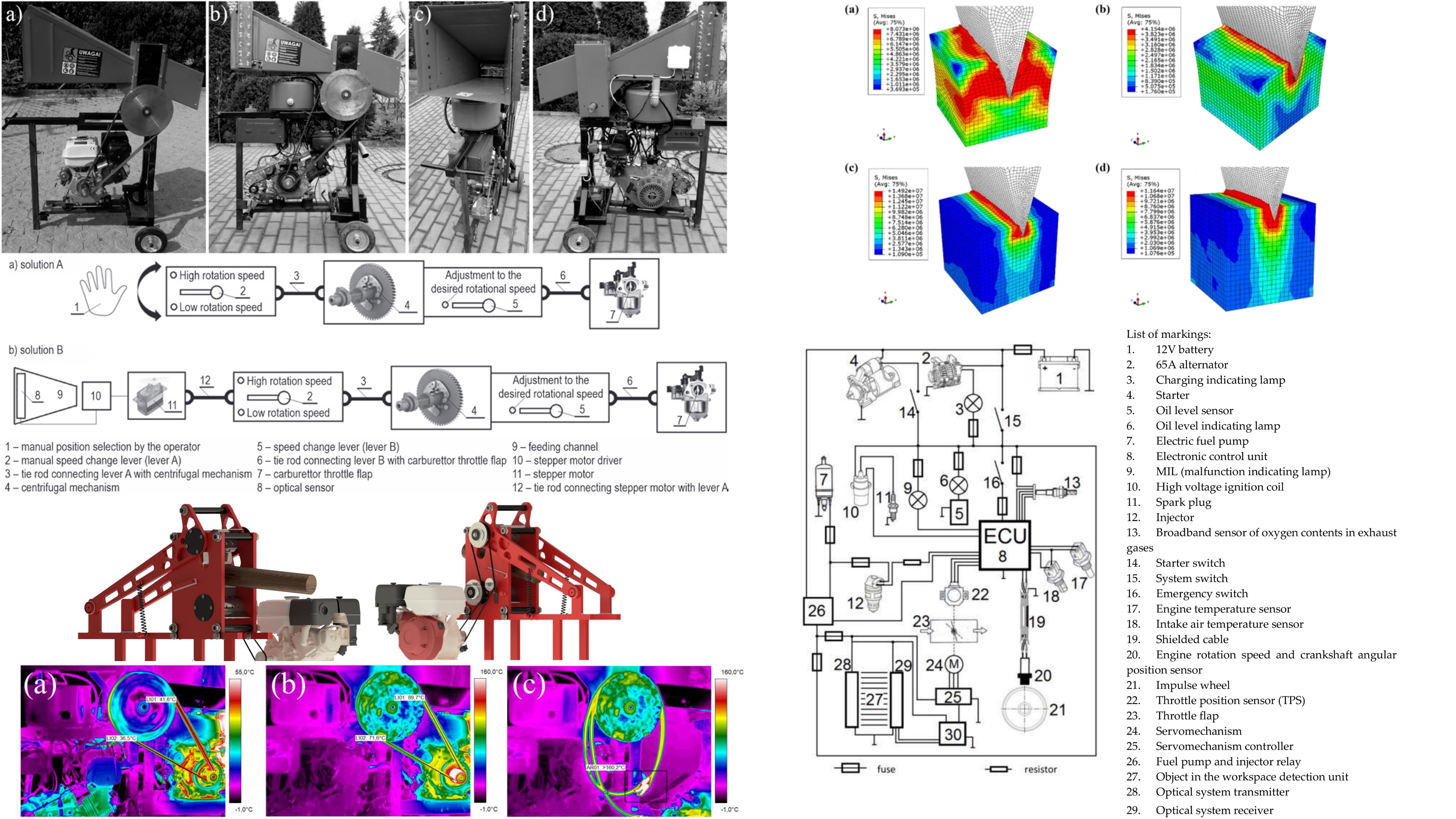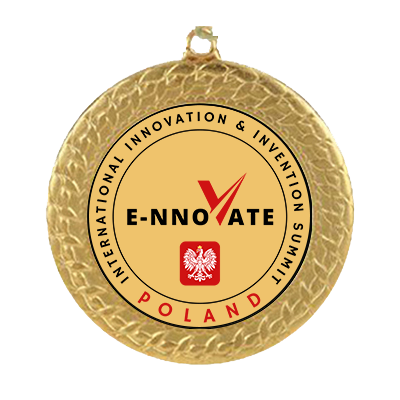
Mechatronic assembly of design solutions for energy-efficient reduction of wood size
Description: Contemporary cities recognize the necessity of developing urban green infrastructure. Trees in urbanized areas bring countless benefits, such as purifying the air, providing shade, retaining water, and improving mental health. However, they require maintenance processes like pruning and cutting. For this purpose, the development of machinery used in these areas is required, such as chippers, chainsaws, and wood splitters. A team from the Poznań University of Technology, under the leadership of Dr. hab. Eng. Łukasz Warguła, Prof. PP, presents 18 design solutions improving the operation of these devices in terms of reducing fuel consumption, emissions, or ergonomic handling, thereby reducing musculoskeletal system overload. The work utilizes mechatronic solutions or innovative mechanisms. Selected projects are developed in interdisciplinary teams with scientists from Polish universities such as the AGH University of Science and Technology in Krakow or the Poznan University of Life Sciences, as well as with researchers from Kazakhstan from the Karaganda University of Technology.
The main works concern the reduction of fuel consumption and exhaust emissions by wood chippers through: Improving the fuel-air mixture control process by adapting to working conditions. A collection of solutions in this regard utilizes mechatronic systems regulating the rotational speed of the chipper drive based on sensors such as wood detection in the feeding channel, vibrations of the cutting mechanism, optical control system of the cutting mechanism operation, thermal control system of the cutting mechanism, or mechanical gearbox. It considers the type of wood being chipped: species, moisture content, size, and color. Implementing mechanisms that enhance device functionality, increasing the ability to chip cross-sectional wood or improving efficiency. Systems are also developed to improve the ergonomics and efficiency of work in chainsaws or wood splitters. All solutions, through the application of innovative control systems or mechanisms, are characterized by: Reduction of energy or fuel consumption, Reduction of harmful exhaust gas emissions, Improvement of operation and ergonomic work, Improvement of efficiency, and the solutions are either new devices or modernization modules for commercial solutions.
Organisation: Poznan University of Technology, AGH University of Science and Technology in Krakow, Poznań University of Life Sciences, Abylkas Saginov Karaganda Technical University (Kazakhstan)
Innovator(s): dr hab. inż. Łukasz Warguła, prof. PP, dr hab. inż. Bartosz Wieczorek, prof. PP, dr hab. inż. Michał Bembenek, prof. AGH, dr hab. inż. Maciej Sydor, prof. PU, PhD Eng. Olga Zharkevich
Category: Environment
Country: Poland

